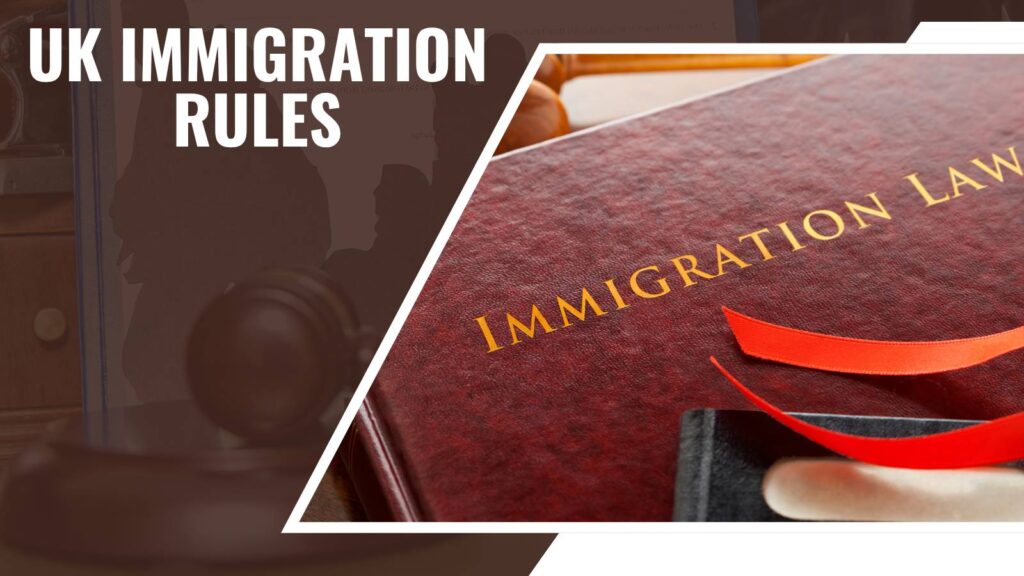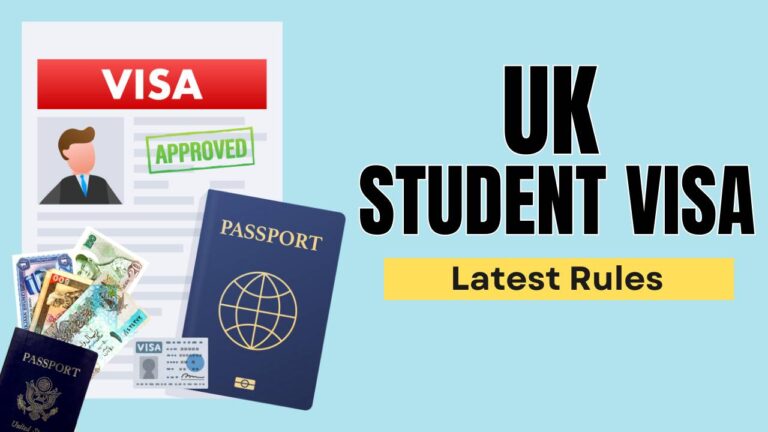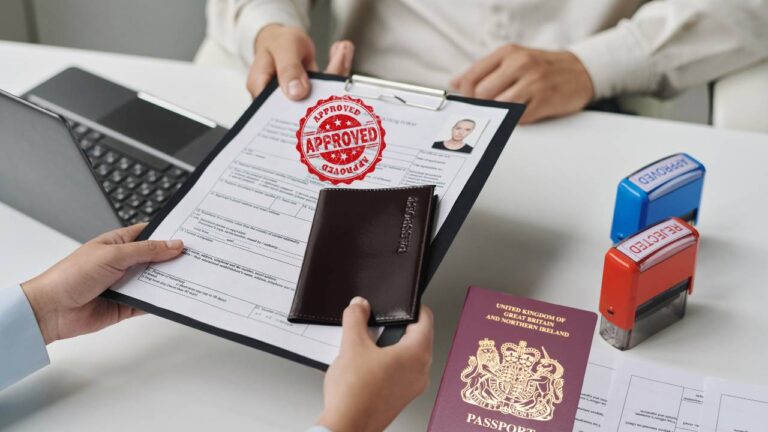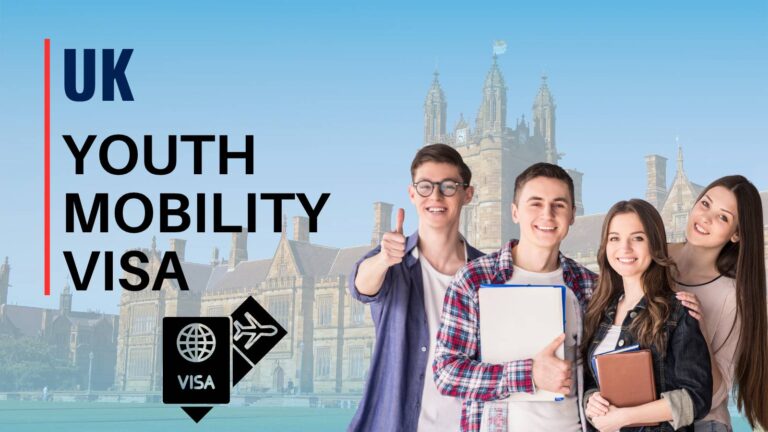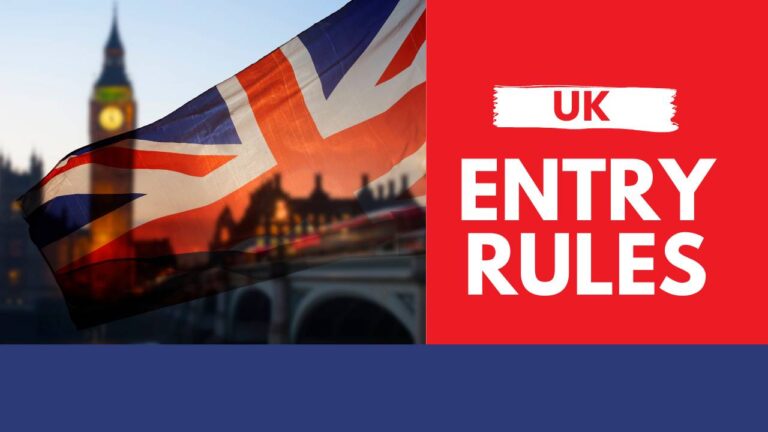United Kingdom has recently introduced a comprehensive overhaul of its immigration system, significantly altering the legal, financial, and procedural landscape for migrants. These newly revised UK immigration rules are among the most impactful policy shifts in recent memory and affect nearly all categories of migrants—skilled workers, healthcare professionals, international students, business investors, asylum seekers, and those seeking family reunification. These changes reflect the government’s commitment to reducing net migration while still protecting essential sectors such as healthcare and innovation.
UK Entry Rules: What Tourists, Students & Workers Need to Know
Here are the core changes introduced in the 2025 UK immigration policy, who qualifies under the new system, and how different categories of applicants are affected. Every section is crafted to offer deep insight, ensuring that migrants and UK employers alike understand what to expect and how to respond.
New Era in UK Immigration Policy: Why the Changes Were Introduced
In recent years, the UK has faced rising political pressure to reduce immigration numbers, especially after net migration exceeded 700,000 annually. While immigration has been beneficial to the economy—particularly in sectors such as healthcare and IT—it has also triggered debates over housing, infrastructure, and public service capacity.
To address this, the government announced a multi-phase policy reform targeting different visa categories. The purpose is to cut down on low-skilled immigration, tighten routes that were being exploited (such as student dependents), and ensure that only those who bring significant value to the UK economy can enter and stay. These adjustments are being implemented throughout 2025, and every potential migrant must now adhere to these updated UK immigration rules.
Major Updates in the UK Immigration Rules: 2025 Policy Overview
Several headline changes define the new immigration framework:
- The minimum salary threshold for Skilled Worker Visas has been raised from £26,200 to £38,700, representing one of the most significant changes to date. This change is aimed at reducing low-wage migration, though it makes it harder for certain applicants to qualify.
- The Family Visa income threshold has been increased, starting at £29,000 in early 2025 and expected to reach £38,700 by early 2026. This shift is set to impact British citizens and settled migrants trying to bring over partners or children.
- Students will now face tighter rules, particularly when bringing dependents, as most postgraduate taught students will no longer be allowed to sponsor spouses or children.
- Healthcare and shortage occupation roles are receiving exemptions, with a slightly lower salary threshold and fewer restrictions.
- Changes to the asylum system are also being enacted to prevent abuse of the immigration process through irregular routes.
These changes mean that all applicants—whether students, workers, or family members—must reevaluate their eligibility and prepare for stricter documentation and higher financial demands.
UK Immigration Rules: Full Breakdown of New Visa Policies & Eligibility
1. Skilled Worker Visa: Higher Salary Thresholds and Tighter Qualifications
The Skilled Worker Visa remains a primary pathway for overseas professionals aiming to work in the UK, but new UK immigration rules have raised the bar considerably. One of the most impactful changes is the increase in the minimum salary threshold to £38,700 per year (or £15.88 per hour). This is a substantial jump from previous figures, effectively limiting access to this route for many entry-level or lower-income professionals.
To qualify, applicants must:
- Secure a job offer from a licensed UK employer.
- Ensure the job is listed on the eligible occupations list.
- Meet English language requirements, proven via tests like IELTS.
- Hold relevant qualifications or demonstrated skills for the role.
Exceptions remain for shortage occupations—including nurses, care workers, civil engineers, and IT professionals—who can still qualify with a reduced salary threshold of around £30,960. Employers must comply with Home Office requirements, including sponsorship responsibilities, accurate salary reporting, and consistent employee monitoring.
2. Health and Care Worker Visa: Supporting NHS and Social Care Staffing
While many visa categories face stricter requirements, the Health and Care Worker Visa continues to be one of the more accessible routes. Designed specifically for professionals in the NHS and allied sectors, this visa aims to ease the UK’s healthcare staffing crisis.
Key advantages include:
- No Immigration Health Surcharge (IHS) – saving applicants hundreds of pounds.
- Lower salary threshold of £23,200 annually, far below other Skilled Worker routes.
- Faster processing, with most applications decided within 3 weeks.
- Continued eligibility to bring dependents, though documentation is now examined more strictly.
This route offers long-term prospects, including a pathway to permanent residency, and remains essential to the UK’s ongoing effort to staff hospitals, care homes, and clinics amid growing demand.
3. Student Visa Reforms: Stricter Rules for Dependents and Funding
The UK has long been a top destination for international students. Under the 2025 UK immigration rules, studying in the UK now comes with tougher entry requirements, especially for those bringing family members.
Significant reforms include:
- Dependents are now restricted to students enrolled in PhD or research-based postgraduate programs. Those pursuing taught Master’s degrees or undergraduate studies are no longer allowed to bring spouses or children.
- Increased financial proof requirements. Students must show they can cover tuition and living expenses:
- £1,652/month for 9 months if studying in London.
- £1,334/month for 9 months if studying outside London.
The Graduate Route Visa, which lets international students remain in the UK for up to 2 years (3 years for PhD holders) after graduation, remains unchanged for now. Rumors of a review or cancellation by 2026 are growing, prompting urgency among those planning their UK education journey.
4. Family Visas: Steeper Financial Barriers for Sponsorship
Another major shift in the UK immigration rules involves family reunification. British citizens and settled residents now face higher income thresholds to bring loved ones to the UK.
Here’s what’s changed:
- Minimum income requirement has increased from £18,600 to £29,000, with plans to raise it to £38,700 by early 2026.
- Sponsors must provide evidence of sustained income, such as:
- Payslips for the last 6 months.
- Tax returns and employment contracts.
- In some cases, savings over £16,000 can supplement the income requirement, though strict conditions apply.
This move places pressure on lower-income families, making it more difficult to reunite across borders. Critics argue this is less about economic control and more a backdoor method of reducing net migration numbers.
5. Asylum and Humanitarian Protection: Fast-Tracked Processes and Increased Deportations
The UK government has taken a tough stance on asylum seekers, implementing fast-track processes and introducing a new “safe country” list.
New asylum rules include:
- Claims from designated safe countries can be rejected with limited or no appeal.
- Those entering the UK via unauthorized routes, such as small boats across the Channel, face automatic removal within 10 days if denied.
- A ban on future re-entry or legal residency applies to individuals removed through these procedures.
While these reforms aim to streamline decision-making and discourage irregular migration, they raise serious concerns about human rights violations, especially for genuine refugees who may be denied protection based solely on procedural grounds.
6. Global Talent, Innovator, and Business Visas: Elite Routes with High Standards
Despite tightening rules across most visa categories, the UK continues to welcome high-skilled global talent, entrepreneurs, and innovators under specialized visa pathways.
Innovator Founder Visa
Entrepreneurs with a compelling, unique business idea can apply under this route, but face several requirements:
- A minimum investment fund of £50,000.
- Endorsement by a government-approved endorsing body.
- A rigorous business assessment process, including proof of innovation and scalability.
Global Talent Visa
This visa is designed for leaders and emerging talents in sectors such as:
- Science and research
- Digital technology
- The arts and culture
Applicants must receive an endorsement from a recognized UK organization, such as Tech Nation, British Academy, or Arts Council England. Although there is no salary threshold, candidates must demonstrate international recognition and contribution to their field.
These routes offer fast-tracked settlement options, making them appealing for those at the top of their professions who want to contribute to the UK’s growth in research, innovation, and technology.
Who Qualifies Under the New UK Visa Policies?
With the UK government’s 2025 reforms aiming to reduce net migration while attracting high-skilled professionals, only specific categories of applicants are more likely to qualify under the new UK immigration rules. These include:
1. Skilled Professionals in Shortage Occupations
Applicants with experience in areas listed as Shortage Occupation Roles have a higher chance of visa approval. Key sectors include:
- Healthcare (nurses, doctors, care workers, paramedics)
- Construction (bricklayers, carpenters, electricians)
- Technology (software developers, cybersecurity analysts)
- Engineering (civil, mechanical, and electrical engineers)
These roles not only meet demand but often benefit from reduced salary thresholds and expedited processing.
2. Global Talent and Innovator Route Applicants
High-achieving professionals such as scientists, researchers, inventors, and entrepreneurs can apply under the Global Talent or Innovator Founder routes. These applicants must be endorsed by relevant UK bodies or demonstrate a strong business plan for innovative ventures. The immigration rules encourage such individuals, as they contribute to the UK’s knowledge economy and job creation.
3. International Students in Postgraduate Research
The new rules also accommodate postgraduate and doctoral students, especially those enrolled in STEM-related and research-intensive courses. These students are allowed to stay in the UK longer post-study and can transition into work visas more easily, provided they find roles meeting salary and skill requirements.
4. Family Members of British Nationals
Family-based visa routes remain open, but they now come with stricter income thresholds. For instance, a British citizen sponsoring a spouse or partner must earn a minimum of £29,000 per year, up from the previous £18,600. This amount is set to increase further to £38,700 by early 2025.
Applicants must also demonstrate genuine relationships, meet English language standards, and provide thorough documentation during the application process.
Practical Steps: How to Apply Under the New Rules
Applying for a UK visa under the 2025 immigration system requires planning, documentation, and adherence to new protocols. Here’s a step-by-step guide to ensure success:
1. Assess Your Eligibility
Start by confirming your salary level, job code, educational qualifications, and financial capacity. Visit the official UKVI website or consult the updated Points-Based System criteria to ensure your role qualifies.
Ensure your employer holds a valid sponsorship license and that the position they are offering meets the minimum salary threshold.
2. Gather All Required Documents
The application process now requires extensive documentation to avoid delays or rejections. These documents include:
- Certificate of Sponsorship (CoS) from your employer
- Valid passport and travel history
- Proof of English language proficiency (IELTS or equivalent)
- Tuberculosis test results (if applicable)
- Proof of personal savings (if your employer is not certifying maintenance)
- Educational and professional certificates
- Police clearance certificate for specific roles
For students, you’ll also need a Confirmation of Acceptance for Studies (CAS) and evidence of tuition fee payment or funding.
3. Apply Through the UKVI Portal
Once ready, submit your application online via the UK Visas and Immigration (UKVI) portal. Ensure that you:
- Choose the correct visa route (Skilled Worker, Student, Family, Global Talent, etc.)
- Pay the appropriate application fee and Immigration Health Surcharge (IHS)
- Upload all supporting documents as requested
Incomplete or incorrect applications may lead to automatic refusal or delays.
4. Book and Attend Biometric Appointment
Applicants must book and attend a biometric appointment at their local Visa Application Centre (VAC). During this appointment, your fingerprints, photo, and signature will be taken. Some countries also offer priority processing for an additional fee.
5. Track Your Application and Wait for a Decision
After submitting your biometric data, you can track your application through the UKVI portal. The decision timeframe varies by visa type:
- Skilled Worker Visa: 3–8 weeks
- Student Visa: 2–3 weeks
- Family Route: Up to 12 weeks
- Priority services: Decision in 5–10 working days (additional charges apply)
If successful, you’ll receive a vignette sticker in your passport and a Biometric Residence Permit (BRP) upon arrival in the UK.
6. Consult With a Professional
Given the evolving nature of the UK immigration rules, it’s strongly advised to work with an experienced immigration solicitor or registered consultant. This is particularly crucial for complex cases involving dependents, switching routes, or appeals.
Staying updated with changes to the UK immigration rules is no longer optional — it is essential for anyone looking to work, study, or settle in the United Kingdom.
FAQs
1. What are the major changes in the UK immigration rules for 2025?
The UK immigration rules have been updated to prioritize skilled migration and reduce net migration levels. Key changes include:
- Higher salary thresholds for Skilled Worker visas (now £38,700 annually).
- Stricter requirements for family visas, including higher income thresholds.
- Revised eligibility for shortage occupations.
- Tougher compliance expectations for sponsoring employers.
- Reduced options for low-skilled workers and dependents.
These changes are designed to attract talent in priority sectors while tightening control over overall immigration numbers.
2. Who can apply under the Skilled Worker route in 2025?
Eligible applicants for the Skilled Worker visa must:
- Have a confirmed job offer from a UK-licensed sponsor.
- Work in a role listed on the eligible occupations list.
- Meet the new salary threshold (usually £38,700 per year).
- Demonstrate English language proficiency.
- Provide necessary documents, including a Certificate of Sponsorship (CoS).
Healthcare workers, engineers, teachers, and IT professionals remain among the most eligible candidates.
3. What is the new minimum salary requirement for UK work visas?
As of 2025, the general salary threshold for a Skilled Worker visa has been raised to £38,700 per year, unless the role is classified as a shortage occupation or the applicant qualifies under exceptions such as being a new graduate or working in health or social care.
Each occupation also has its own “going rate,” and applicants must meet the higher of the two: the general salary threshold or the job-specific minimum.
4. What are the requirements for sponsoring employers under the new rules?
Employers must:
- Hold an active sponsor license issued by UK Visas and Immigration (UKVI).
- Offer jobs that meet salary and skill thresholds.
- Keep accurate records of all sponsored employees.
- Report changes in employment within 10 working days.
- Pass compliance audits by UKVI, including unannounced visits.
Failure to meet these duties can result in fines, license suspension, or revocation.
5. Can international students stay in the UK after graduation?
Yes, international students graduating from a UK institution can stay under the Graduate Visa route. This allows them to remain in the UK for:
- 2 years after undergraduate or master’s degrees.
- 3 years after completing a PhD or doctoral degree.
Graduates may switch to a Skilled Worker visa if they receive a qualifying job offer meeting the updated salary and role criteria.
6. What are the new rules for family visa applications?
For family visas (e.g., spouse, partner, or child of a British citizen or settled person), the minimum income requirement has increased:
- £29,000 (as of April 2025).
- Expected to rise to £38,700 by early 2025.
Applicants must also demonstrate a genuine relationship, meet English language requirements, and provide detailed documentation, such as joint financial records, housing details, and communication history.
7. What is the Global Talent visa and who qualifies for it?
The Global Talent visa is designed for individuals with exceptional talent or promise in fields such as:
- Science and research
- Arts and culture
- Digital technology
- Academia
Applicants must either be endorsed by a recognized UK body or win international awards. This visa allows for flexible work and can lead to indefinite leave to remain (ILR) after three years.
8. What documents are required when applying for a UK visa?
While requirements vary by visa type, common documents include:
- Valid passport and travel history
- Certificate of Sponsorship (for work visas)
- Proof of English language proficiency (e.g., IELTS)
- Financial evidence (bank statements, payslips, or sponsorship letters)
- Tuberculosis test results (if applicable)
- Police clearance certificates for certain roles
All documents must be submitted digitally during the application process via the UKVI portal.
9. How long does it take to process a UK visa application in 2025?
Processing times depend on the visa type:
- Skilled Worker visa: 3–8 weeks
- Student visa: 2–3 weeks
- Family visa: Up to 12 weeks
- Global Talent visa: 3–4 weeks
- Priority processing: 5–10 working days (available for additional fees)
It’s advisable to apply early and ensure all documentation is complete to avoid delays.
10. Can I bring my dependents under the new UK immigration rules?
Yes, but there are new limitations and higher requirements:
- Skilled workers and students on postgraduate research courses can bring dependents (spouse/partner and children).
- Sponsors must demonstrate sufficient income or financial support.
- Dependents must also meet visa conditions, including paying the Immigration Health Surcharge (IHS).
Dependents can work and study in the UK but must follow visa restrictions tied to the main applicant’s status.
